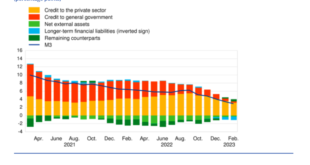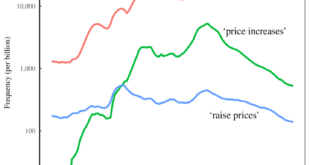from Asad Zaman Cold: we let our emotions influence our behavior. Callous: concern for others causes us to share our good fortune with others, instead of keeping everything for ourselves. Cruel: We feel pain for the suffering of others, and sorrow for the extinction of species, or destruction of their habitat, instead of joy at the resulting profits. Calculating: We are not concerned with maximizing our monetary gains, down to the last penny. The paper “The Empirical Evidence Against...
Read More »Self-employed workers in India
from C. P. Chandrasekhar and Jayati Ghosh Well over half of all workers in India are self-employed. The proportions of self-employed workers are significantly higher in rural areas, and among women. In rural areas, it is presumed that it is the dominance of small-scale agriculture that leads to more self-employment, but in fact self-employed workers are around half of those engaged in non-agricultural employment as well. Even in urban areas, those working without any defined employer...
Read More »Busting the natural rate of unemployment myth
from Lars Syll Almost sixty years ago Milton Friedman wrote an (in)famous article arguing that (1) the natural rate of unemployment was independent of monetary policy and that (2) trying to keep the unemployment rate below the natural rate would only give rise to higher and higher inflation. The hypothesis has always been controversial, and much theoretical and empirical work has questioned the real-world relevance of the idea that unemployment really is independent of monetary policy and...
Read More »The Silicon Valley bank bailout: The purpose of government is to make the rich richer
from Dean Baker There is a standard tale of politics where conservatives want to leave things to the market, whereas the left want a big role for government. The right likes to tell this story because it advantages them politically, since most people tend to have a positive view of the market. The left likes to tell it because they are not very good at politics and have an aversion to serious thinking. The Silicon Valley Bank (SVB) bailout is yet another great example of how the right is...
Read More »new issue of Real-World Economics Review
real-world economics review issue 103 31 March 2023 You may post comments on these papers here. Please click here to support this open-access journal and the WEA download whole issue How to Make the Oil Industry Go BustBlair Fix 2 Technological Change and Strategic Sabotage: A Capital as Power Analysis of the US Semiconductor BusinessChristopher Mouré 26 Do copyrights and paywalls on academic journals violate the US Constitution?Spencer Graves 56 Mainstream economics – the...
Read More »Modern Monetary Statistics
This ECB graph below, showing the interrelation between credit and money in the Euro Area (source) is thoroughly (Post-)Keynesian in nature: Modern Monetary Statistics (MMS). I’ll return to that. First, what does it tell? For some months, a gentle Euro Area ‘liquidity crunch’ has been going on. The yellow and the orange bars are getting smaller meaning that year on year growth rates of ‘M3’ money creating ‘credit’ are declining. Three month flow data are already negative. Loans are...
Read More »Paul Krugman — finally — admits he was wrong!
from Lars Syll In a recent essay titled “What Economists (Including Me) Got Wrong About Globalization,” adapted from a forthcoming book on inequality, Krugman writes that he and other mainstream economists “missed a crucial part of the story” in failing to realize that globalization would lead to “hyperglobalization” and huge economic and social upheaval, particularly of the industrial middle class in America. And many of these working-class communities have been hit hard by Chinese...
Read More »On the benefits — and dangers — of reading
from Lars Syll As long as reading is for us the instigator whose magic keys have opened the door to those dwelling-places deep within us that we would not have known how to enter, its role in our lives is salutary. It becomes dangerous, on the other hand, when, instead of awakening us to the personal life of the mind, reading tends to take its place, when the truth no longer appears to us as an ideal which we can realize only by the intimate progress of our own thought and the efforts of...
Read More »Weekend read – Inflation! The battle between creditors and workers
from Blair Fix I’ve been writing about inflation for the better part of three months. It’s been exhausting. Most of my time has been spent debunking misconceptions promoted by mainstream economists. Fortunately, I’m ready to move on. What’s interesting about inflation is not the fact that prices rise. What matters is that prices rise at different rates. In other words, inflation creates winners and losers — it redistributes income. In this post, I’ll dive into the redistribution dynamics...
Read More »On fighting inflation
from Lars Syll [embedded content] Absolutely lovely! Comedian and television host Jon Stewart turns out to know much more about real-world economics than mainstream Harvard economist Larry Summers. Don’t know why, but watching this interview/debate makes yours truly come to think about a famous H. C. Andersen tale …
Read More » Real-World Economics Review
Real-World Economics Review





